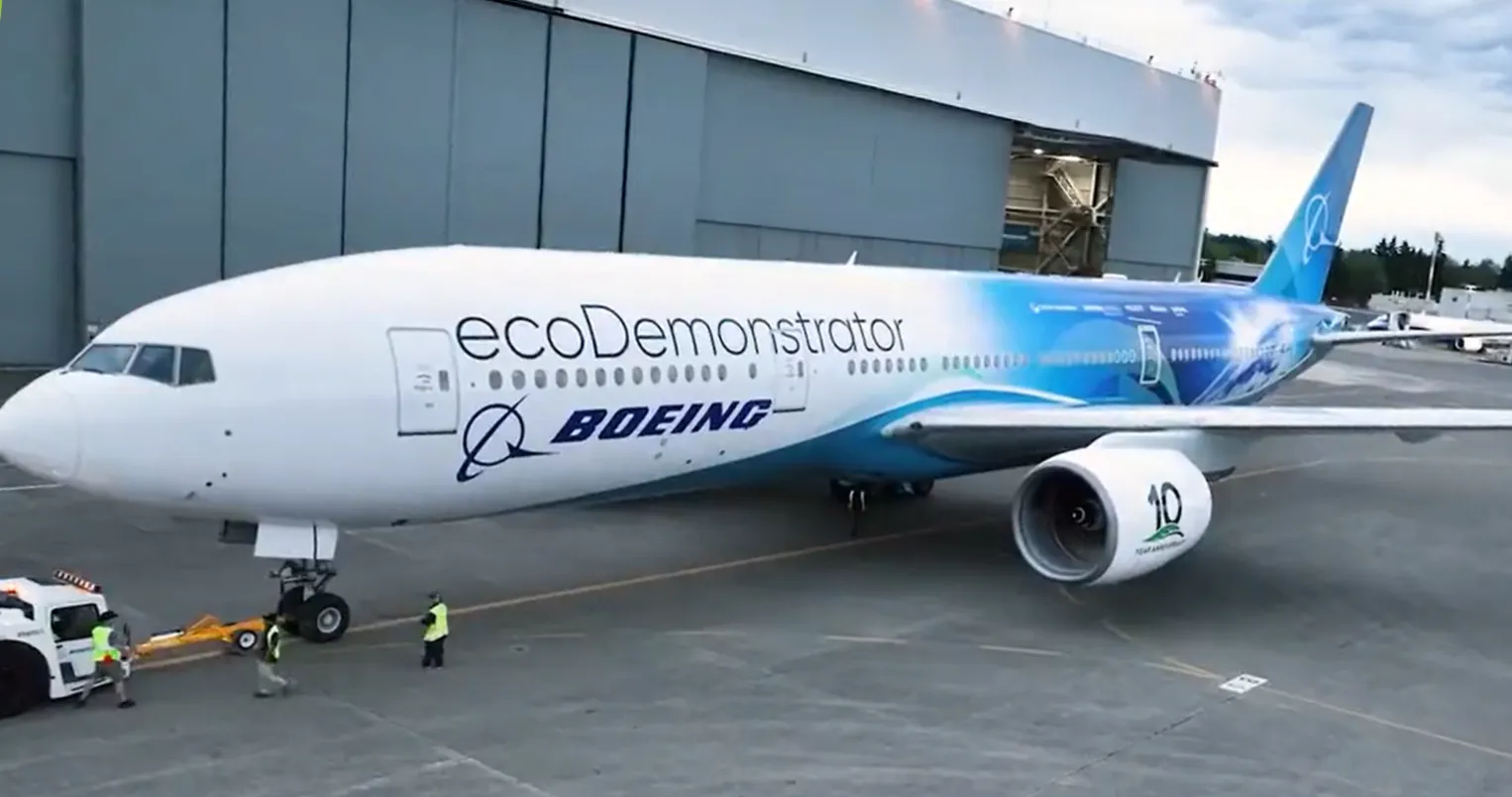
Boeing Celebrates 10 Years Of Eco Testing
Oct 28, 2022

Boeing recently marked a significant milestone, celebrating a decade of its eco testing initiatives aimed at enhancing environmental sustainability in aviation. Over the past ten years, the company has focused on developing and implementing innovative technologies that reduce emissions, improve fuel efficiency, and promote sustainable aviation fuels. This commitment has not only advanced Boeing's environmental goals but also set industry standards for greener practices. The celebration highlighted the achievements made in collaboration with various stakeholders and emphasized the importance of ongoing research and development to foster a more sustainable future for the aerospace sector.
Boeing has made significant strides in the past decade, particularly in the field of "eco testing". Celebrating "10 years of eco testing", the company has focused on innovative ways to reduce its environmental footprint while maintaining high safety and performance standards. This commitment to sustainability not only underscores Boeing's leadership in the aerospace industry but also aligns with global efforts towards environmental conservation.
Significance of Eco Testing
Eco testing plays a vital role in assessing the environmental impact of aircraft design and operation. By analyzing emissions, fuel efficiency, and noise levels, Boeing ensures that its aircraft meet rigorous environmental standards. This proactive approach contributes to the "sustainability" of the aviation industry and demonstrates Boeing's dedication to a greener future.
Key Components of Boeing's Eco Testing Program
Boeing's "eco testing program" encompasses several key components designed to evaluate and enhance the environmental performance of its aircraft. These components include:
| Component | Description |
|---|---|
| Emissions Testing | Measurement of greenhouse gases and pollutants emitted during flight to ensure compliance with international standards. |
| Noise Testing | Assessment of aircraft noise levels during takeoff, landing, and cruising to minimize impact on communities near airports. |
| Fuel Efficiency Analysis | Evaluation of fuel consumption rates to identify opportunities for improvement and cost savings. |
| Material Sustainability | Research into eco-friendly materials used in aircraft construction to reduce overall environmental impact. |
Achievements Over the Past Decade
Over the last ten years, Boeing has achieved remarkable milestones in its eco testing initiatives. Some of the notable accomplishments include:
- Reduction in Carbon Emissions: Boeing has successfully reduced the carbon emissions of its aircraft by over 20% through advancements in technology and design.
- Innovative Fuel Solutions: The development of sustainable aviation fuels (SAFs) has played a crucial role in decreasing the aviation sector's reliance on fossil fuels.
- Noise Reduction Technologies: Implementation of new technologies that have resulted in quieter aircraft, helping to alleviate noise pollution around airports.
The Future of Eco Testing at Boeing
Looking ahead, Boeing is committed to enhancing its "eco testing" efforts. The company plans to invest in cutting-edge technologies that will further improve aircraft efficiency and reduce emissions. This includes:
| Future Initiative | Description |
|---|---|
| Advanced Aerodynamics | Research into new designs that improve aerodynamic efficiency, resulting in lower fuel consumption. |
| Hybrid-Electric Propulsion | Exploration of hybrid-electric systems that could significantly reduce emissions and fuel use. |
| Enhanced Testing Facilities | Investment in state-of-the-art testing facilities to simulate real-world conditions more accurately. |
Conclusion
As Boeing celebrates "10 years of eco testing", it stands as a testament to the company's commitment to sustainability and innovation. With a focus on reducing environmental impact through comprehensive testing and the adoption of new technologies, Boeing is not only setting a benchmark in the aerospace industry but also contributing to the global movement towards a more sustainable future. As we move forward, the importance of eco testing will continue to grow, and Boeing is well-positioned to lead the way.
In conclusion, Boeing's dedication to eco testing reflects its broader vision of achieving a sustainable aviation ecosystem. By prioritizing eco-friendly practices and investing in research and development, Boeing is paving the way for a greener tomorrow.
Related Articles

Explore Thailand: The Best Islands to Visit for Paradise, Adventure, and Relaxation

The Ultimate Guide to the Best Islands in Thailand for Your Next Getaway

Do babies need passports? How to get a passport for a newborn

How to get a U.S. passport fast: here’s how to expedite the process

What is Mobile Passport Control: 5 reasons why you should use it

SENTRI vs. Global Entry: A detailed guide

Do you need a passport to go to the Bahamas? Let’s find out

Do you need a passport to go to Mexico? A detailed guide

Do you need a passport to go to Canada? We got the answer

Do You Need a Passport for a Cruise: An Essential Travel Guide

Booster Seat Requirements: All the Rules to Follow in Your Rental Car

What Are the World’s Most Powerful Passports, and How Does Yours Rank?

How to Take a Passport Photo at Home: A Helpful Guide

You've got to have heart! Southwest's new livery

Your opinion: Should water be free on low cost carriers?

Young women bolder than guys as solo travellers
